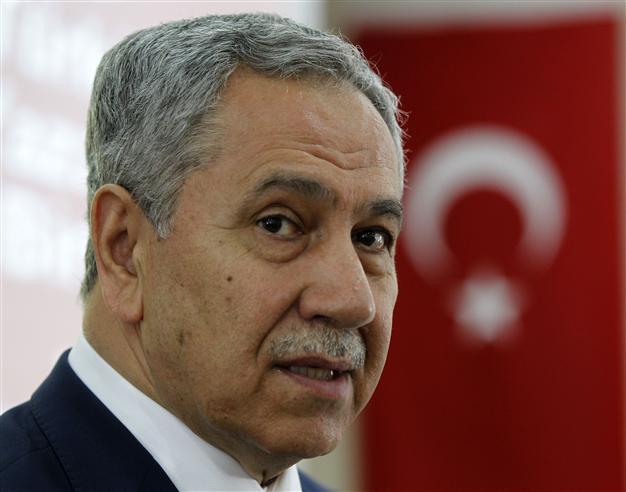Gov’t unveils strategy to bring presidential system to Turkey
ANKARA

Deputy Prime Minister Bülent Arınç says Turkish Prime Minister Recep Tayyip Erdoğan prefers a presidential or semi-presidential system for Turkey. AA Photo
Deputy Prime Minister Bülent Arınç has drawn a roadmap on how the ruling Justice and Development Party (AKP) could amend the Constitution on its own in order to bring in presidential system to Turkey.Arınç was discussing the potential under the scope of Prime Minister Recep Tayyip Erdoğan being elected to presidency in August.
“Our honorable prime minister believes a semi-presidential or presidential system could govern Turkey better,” Arınç said April 28, speaking in an interview with news channel A Haber.
Underlining that both semi-presidential and presidential systems are being used in democratic regimes, Arınç cited the American and French political systems as good examples.
“Let’s suppose that our honorable prime minister becomes president [in the August 2014 elections] and his party [the AKP] wins the 2015 [parliamentary] elections in a way that would bring 367 seats, then the AKP would definitely make a constitutional amendment on its own and may carry out the transition to one of the presidential systems via a constitutional amendment,” Arınç said.
Turkey’s Parliament holds 550 seats. A minimum of 330 votes are required for a constitutional change, while any motion accepted with between 330 and 367 votes goes directly to a referendum. The total number of seats currently occupied by the AKP is 313.
In response to a question, Arınç made clear that what he has been speaking of was not about holding a new presidential election shortly after August 2014. The issue is about the president’s authority, Arınç said and added: “That is to say, it may turn into a concept that would require a review of the president’s relations with the executive body, the legislative body’s relations and the judiciary’s relations. This is not an unreasonable possibility.”
















